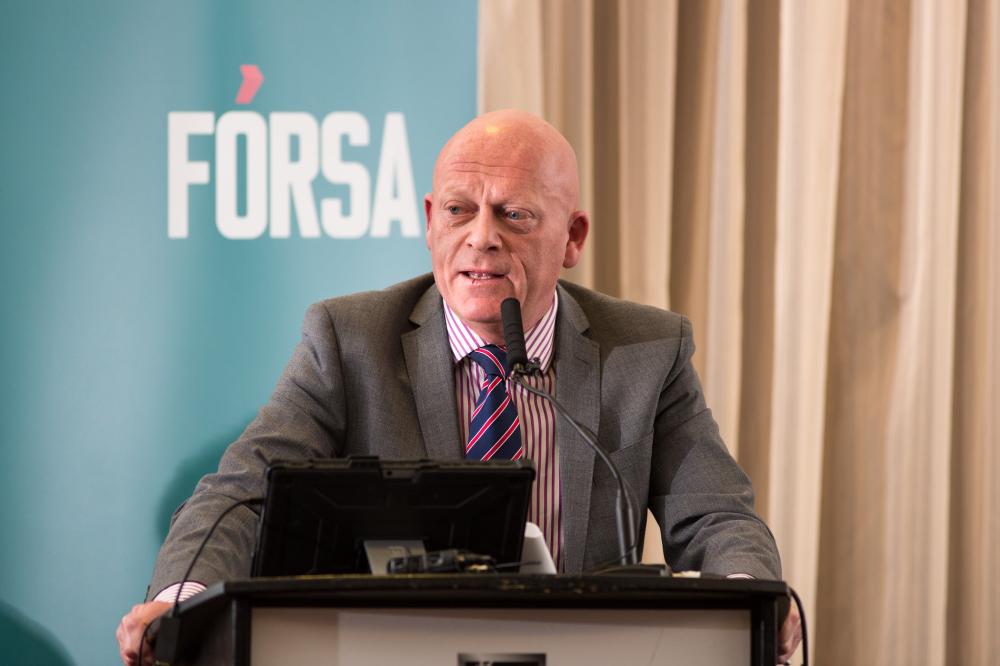The Department of Health, by refusing to make provision for compensatory rest for health managers who have worked 60 to 70 hour weeks over seven days in recent months, has confirmed it is not prepared to comply with the state legislation on working time.
In a letter to members on 21st August, Fórsa’s head of health and welfare Éamonn Donnelly (pictured), said the department does not have the authority to ignore its obligations under the law.
Éamonn’s comments follow the union’s claim for staff at the level of Grade VIII and above, who work in areas such as primary and social care, who “have continuously worked excessive hours without adequate compensatory rest” during the height of the Covid-19 crisis.
He said because no additional staff had been deployed to those areas, the workload was such that these workers were effectively unable to take the required rest periods between shifts of work: “This was not a financial claim, but rather a claim for compensatory rest that adequately reflects the uniquely intense period through which they worked.
“These are staff who do not receive overtime or time in lieu, but the responsibility of making crucial decisions about service delivery and responding to the needs of the community falls to them. This will also be the case as the new Covid/winter plan is unveiled by the HSE.
“This is a service plan designed to see us through to the spring of 2022, and will be implemented by the very staff who have not been able to avail of the minimum legal requirement of compensatory rest. This is neither sensible nor is it sustainable,” he said.
The Organisation of Working Time Act 1997 makes provisions for compensatory rest for workers. Éamonn said the legislation provides for the protection of the health and wellbeing of the worker, but also has a crucial role to play in terms of public safety.
Proud
Éamonn expressed that Fórsa is extremely proud of the dedication shown by its members. “As citizens, we remain thankful for your relentless commitment to the pandemic response,” he said.
He added that many fail to grasp that while the pandemic response demands leveled out over time, many were then “charged with the task of re-booting a health service which had been all but suspended.”
The reference period for adequate compensatory rest is not greater than four months, which has now passed. Éamonn added, “There is, however, a provision for a reference period of not greater than six months where there is a foreseeable surge in activity. This, in effect, means that there is a six month period within which adequate compensatory rest should be provided for, where the general provisions on working time cannot be adhered to in ‘real-time’ i.e.
- Maximum weekly working hours of 48 hours per week;
- Daily rest periods of 11 consecutive hours in each period of 24 hours;
- A rest period of at least 24 consecutive hours in each period of 7 days immediately preceded by a daily rest period of 11 hours.”
In earlier correspondence to the WRC Éamonn advised that, in the absence of an agreement, Fórsa would have no option other than to advise its members to observe the provisions of the Act and comply accordingly in future. “Given the challenges anticipated in the health sector over the next few months, there is no doubt that this would have a significant adverse effect on the planning and delivery of services,” he said.
It’s never been more important – or more easy – to get the protections and benefits of union membership. Join Fórsa HERE or contact the union HERE.

